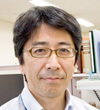
Spin Quantum Computers subleader
Professor, Graduate School of Pure and Applied Sciences, Doctoral Program of Nano-Science and Nano-Technology, University of Tsukuba
Yasuhiro Tokura
Educational Background
| 1985 | M.Arts and Science (Multi-Disciplinary Scinece) from University of Tokyo |
| 1998 | Ph.D. in Arts and Science from University of Tokyo |
Professional Experience
| 1985.04-1986.07 | NTT Musashino Electrical Communications Laboratory |
| 1986.07-2004.03 | Physical Science Research Laboratory, NTT Basic Research Laboratories |
| 1998.11-1999.11 | isiting scientist (c/o Prof. G. E. W. Bauer), Department of Applied Physics (DIMES/FOM) Technical University of Delft |
| 2004.04-2012.03 | Optical Science Research Laboratory, NTT Basic Research Laboratories, Quantum Optical State Control Research Group Leader |
| 2004.05-2012.03 | Guest Professor at Tokyo University of Science |
| 2005.10-2012.03 | Executive manager of Optical Science Research Laboratory |
| 2010.03- | Guest Professor at National Institute of Informatics |
| 2012.04- | Professor at University of Tsukuba |
Research Topics
- Quantum transport, semiconductor physics, Quantum information/communication
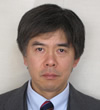
Professor, Osaka University
Masahiro Kitagawa
Educational Background
| 1981 Mar. | B. Eng. in Electronics Engineering, Department of Engineering, Osaka University |
| 1983 Mar. | M. Eng. in Electronics Engineering, Graduate School of Engineering, Osaka University |
| 1994 Dec. | Ph.D. in Quantum Physics, Graduate School of Engineering Science, Osaka University |
Professional Experience
| 1983-93 | Research Scientist, Basic Research Laboratories, NTT |
| 1993-96 | Assistant Professor, Osaka University |
| 1996-97 | Lecturer, Osaka University |
| 1997-2003 | Associate Professor, Graduate School of Engineering Science, Osaka University |
| 2003- | Professor, Graduate School of Engineering Science, Osaka University |
Research Topics
- Quantum optics, Quantum information, Quantum computation, Molecular spin, Magnetic resonance
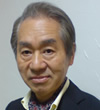
Professor, Osaka City University
Takeji Takui
Educational Background
| 1967, Mar. | Graduated from Dept. Chem., Fac. Eng. Sci., Osaka University (B. Eng.). |
| 1970, Mar. | Graduated from Graduate School of Eng. Sci., Osaka University (M. Eng.). |
| 1973, Mar. | Graduated from Graduate School of Eng. Sci., Osaka University (D. Eng.: PhD). |
Professional Experience
| 1973 – 1974 | Osaka University, JSPS Post Doctoral Fellow. |
| 1974 – 1978 | The University of British Columbia, Dept. Chem., Post Doctoral Fellow & Teaching PD Fellow. |
| 1978 – 1986 | Osaka City University, Fac. Sci., Dept. Chem., Assistant Professor. |
| 1986 – 1989 | Osaka City University, Fac. Sci., Dept. Chem., Lecturer. |
| 1989 – 1992 | Osaka City University, Fac. Sci., Dept. Chem., Associate Professor. |
| 1992 – 1997 | Osaka City University, Fac. Sci., Dept. Chem., Professor. |
| 1997 – 2006 | Osaka City University, Graduate School Sci./Fac. Sci., Dept. Chem., Professor (Reorganized for assessed faculties to belong to Grad. School of Sci.). |
| 2006 – present | Osaka City University, Professor (Specially Appointed). |
Award
| 2004 | SEST Award for 2004 (SEST: The Society of Electron Spin Science and Spin Technology) |
| 2009 | International EPR/ESR Silver Medal for Chemistry 2009 |
Research Topics
- The recent research interests emphasize R&D for molecular spin based quantum computing and quantum information processing (QC/QIP), implementing scalable synthetic electron-nuclear qubits, molecular quantum simulators, and molecular spin quantum cybernetics for electron-nuclear systems, and also focusing particular attention to the implementation of the relevant spin manipulation technology. The R&D for the spin technology has been based on pulsed microwave/RF spectroscopy, equipped with high power electromagnetic coherent irradiation sources. Long-standing research projects on high spin chemistry and molecular magnetism have underlined the recent issues relevant to QC/QIP.
The keywords relevant to the research interests are as follows: (1) QC/QIP, Molecular Quantum Cybernetics, Molecular Spin Quantum Computers, Molecular Quantum Simulators, Quantum Entanglement Chemistry, QC/QIP Spectroscopy, Molecular Designs for Matter Spin Qubits; (2) Chemical Applications of QC/QIP; (3) Molecular Spins, Molecular Spinics, Molecule-Based Magnetism/Magnetics, Organic Magnetism, High Spin Chemistry, Synthetic Open-Shell Chemistry, Topological Degeneracy, Molecular Spin Batteries; (4) Pulsed Electron Magnetic Resonance Spectroscopy, Electron Spin Transient Nutation Spectroscopy, ENDOR, ELDOR; (5) Molecular Quantum Chemistry for Magnetic Properties; (6) Biological Applications of Electron Magnetic Resonance Spectroscopy; (7) Implementation of Materials Sci.-Oriented Electron Magnetic Resonance.
Laboratory HP
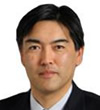
Professor, Keio University
Kohei M. Itoh
Educational Background
- Ph.D., Materials Science and Mineral Engineering, University of California, Berkeley, December 1994.
- M.S., Materials Science and Mineral Engineering, University of California, Berkeley, December 1992.
- B. Eng., Instrumentation Engineering, Keio University, Kanagawa, Japan, March 1989.
Professional Experience
- Professor, Department of Applied Physics and Physico-Informatics, Keio University, April 2006 - present.
- Associate Professor, Department of Applied Physics and Physico-Informatics, Keio University, April 2002- March 2006
- Assistant Professor, Department of Applied Physics and Physico-Informatics, Keio University, April 1998- March 2002
- Instructor, Department of Applied Physics and Physico-Informatics, Keio University, April 1995 - March 1998
Award
- JSPS (Japan Society for the Promotion of Science) Prize, 2009
- Japan IBM Prize for Electronics, 2006
- J. W. Corbett Prize for the Best Paper Presented by a Young Scientist at the 18th International Conference on Defects in Semiconductors, Sendai, Japan, 1995.
- Young Author Best Paper Award, 22nd International Conference on the Physics of Semiconductors, Vancouver, Canada, 1994.
- Scholastic Achievement Award, American Society for Metals Golden Gate Chapter, 1992.
Research Topics
- Research fields: Quantum electronics, quantum information processing, semiconductor physics
- Research topic: Silicon quantum information processing
Laboratory HP
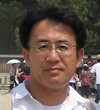
Associate Professor, Osaka University
Yasushi Morita
Educational Background
| March 1983 | Bachelor degree, Nagoya University, Department of Chemistry |
| March 1985 | Master degree, Nagoya University, Department of Chemistry |
| June 1986 | visiting scholar, University of California, Berkeley, U.S.A. (~August 1986) |
| May 1989 | Ph.D. degree, Nagoya University |
Research Career
| June 1989 | Post-doctoral fellow, Harvard University, U.S.A. |
| June 1990 | Assistant Professor, Institute for Molecular Science, Okazaki, Aichi |
| October 1993 | Assistant Professor, Osaka University, Department of Chemistry |
| November 2002 | researcher on "Synthesis and Control" project in Precursory Research for Embryonic Science and Technology (PRESTO), JST (~March 2006) |
| April 2003 | Lecturer, Osaka University, Department of Chemistry |
| March 2004 | Associate Professor, Osaka University, Department of Chemistry |
| December 2008 | Adjunct Associate Professor at World Premier International Research Center Initiative (WPI) Advanced Institute for Materials Research (AIMR) (in Tohoku University) (~March 2010) |
Award
- 2013 Osaka University Presidential Awards for Achievement in Research
- 2012 Osaka University Presidential Awards for Achievement in Research
- The Highest Award in Osaka Smart-Energy Business Competition 2011 by Osaka Prefectural Government, Japan
- 2011 Osaka University Achievement Awards in Research
- Nagase Science and Technology Foundation Award 2011
- The Society of Synthetic Organic Chemistry Japan DIC Award for Functional Material Chemistry 2010
- The Society of Synthetic Organic Chemistry Japan, Kansai Branch Award 2004
Research Keywords
- π-conjugated molecule, open-shell molecule, helicate, hydrogen-bond, electron-transfer
- charge-transfer, molecular magnet, molecular spin battery, OFET, quantum information
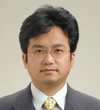
Professor, Tokyo Institute of Technology
Toshimasa Fujisawa
Educational Background
- Master degree from Tokyo Institute of Technology, March, 1988(S63).
- Doctor degree from Tokyo Institute of Technology. March, 1991(H3).
Professional Experience
- NTT Basic Research Laboratories, (April, 1991 - Aug. 2008).
- Senior Research Scientist, NTT (Apr. 1995 - Aug. 2008)
- Research fellow at the Delft University of Technology, (Dec. 1997 - Aug. 1998).
- Distinguished Technical Members, NTT (Apr. 2001 - Aug. 2008)
- Guest Associate Professer at Tokyo Institute of Technology (Jun. 2003 - Aug. 2008)
- Group leader (Quantum Solid State Physics Group) (Jul. 2006 - Aug. 2008)
- Professor at Research Center for Low Temperature Physics, Tokyo Institute of Technology (Sep. 2008 - present)
Award
- Sir Martin Wood Prize, Millenium Science Forum (2003.11)
- JSPS (Japan Society for the Promotion of Science) Prize (2005. 3)
Research Topics
- Quantum transport, Semiconductor physics, quantum information
Laboratory HP
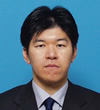
Research Scientist, NTT Basic Research Laboratories
Takeshi Ota
Educational Background
| 2000 | Ph.D. from Engineering Science, Osaka University |
| 1997 | M.S. from Engineering Science, Osaka University |
| 1995 | B.S. from Engineering Science, Osaka University |
Professional Experience
| 2007-Present | Research Scientist, Solid-State Quantum Physics Research Group, NTT Basic Research Laboratories. |
| 2004-2006 | Researcher, Research Team for Interacting Carrier Electronics, Solution Oriented Research for Science and Technology (SORST), Japan Science and Technology Corporation (JST) |
| 2001-2004 | Research Physicist, Tarucha Mesoscopic Correlaton Project, Exploratory Research for Advanced Technologies (ERATO), Japan Science and Technology Corporation (JST) |
| 2000 | Researcher, Bio Venture Center, Osaka Institute of Technology |
Award
| 2004 | JSAP Young Scientist Award for the Presentation of an Excellent Paper |
Research Topics
- Transport properties of semiconductor heterostructures and nanostructures.
Laboratory HP
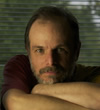
Associate Professor, Keio University
Rodney Van Meter
Educational Background
- B.S. Engineering and Applied Science, California Institute of Technology, 1986
- M.S. Computer Engineering, University of Southern California, 1991
Ph.D. Engineering, Keio University Faculty of Science and Technology,2006
Professional Experience
| 1986 | University of Southern California, Information Sciences Institute |
| 1992 | ASACA Corporation, Hino, Japan |
| 1995 | University of Southern California, Information Sciences Institute |
| 1998 | Quantum Corporation |
| 1999 | Network Alchemy |
| 2000-2003 | Nokia |
| 2006 | National Institute of Informatics, Tokyo, Japan |
| 2007 | Assistant Professor, Keio University Faculty of Environment and Information Studies |
| 2010 | Associate Professor, Keio University Faculty of Environment and Information Studies |
Research Topics
- Distributed quantum computing architectures, quantum networking (repeaters, IPsec with QKD), quantum arithmetic, surface code quantum computation, distributed storage systems, all-IP system architectures



